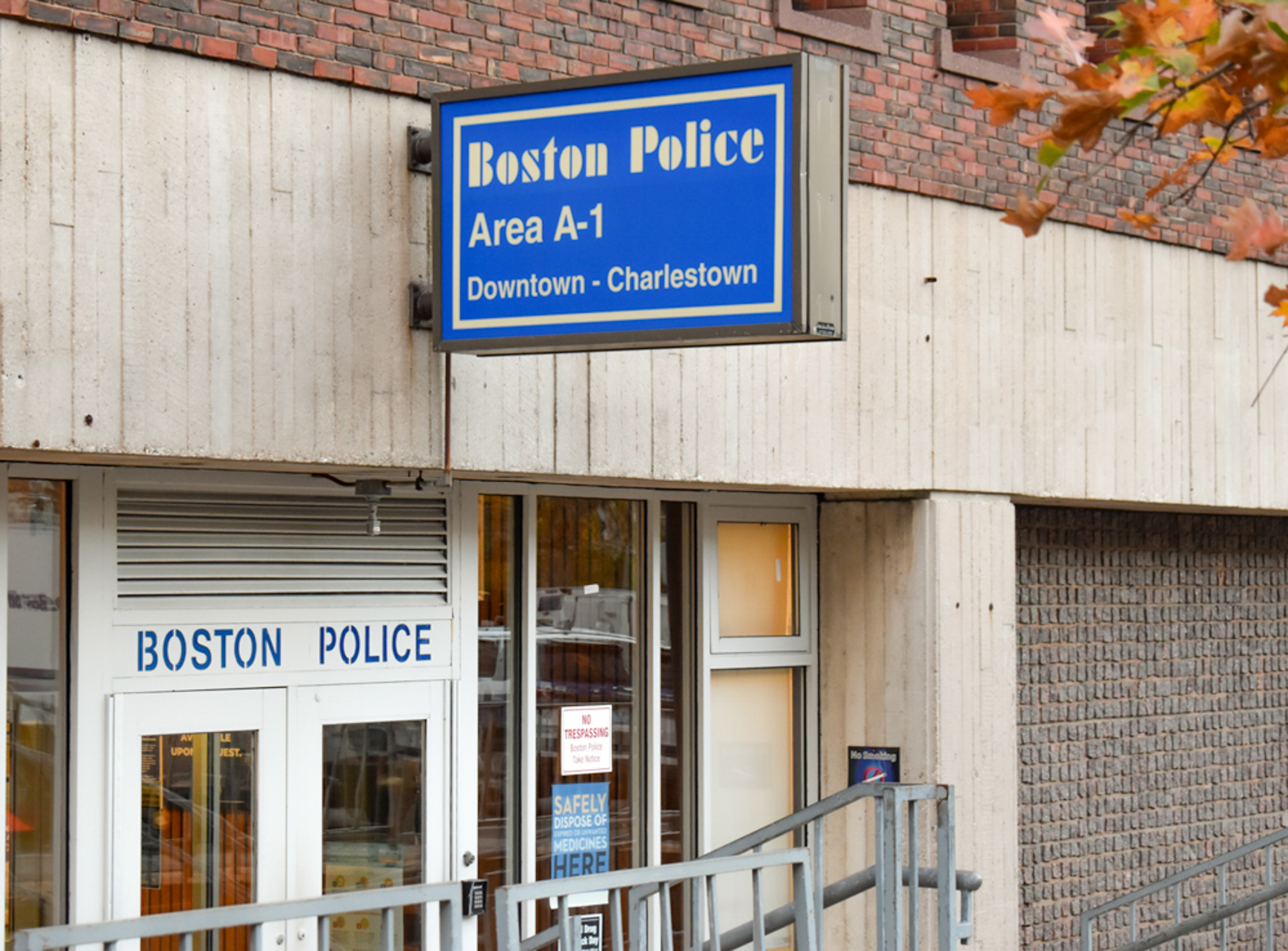The National Lawyers Guild-Massachusetts Chapter recently filed a lawsuit against the Boston Police Department and the Boston Regional Intelligence Center for a violation of a public records request regarding a white supremacist march in July 2022.

The lawsuit, filed on Feb. 26, adds to a recurring theme of BPD and BRIC refusing to abide by public record policies. NLG’s lawsuit regards the Patriot Front march, when roughly 100 members of the Patriot Front, a white supremacist group, marched through downtown Boston. The participants wore masks and carried police shields and flags with them.
In the fall of 2022, the litigation committee submitted a Chapter 66 documents request to the BPD and BRIC, according to Christopher DiOrio, a staff attorney on the litigation committee for the NLG. Almost two years later, they still had not responded, DiOrio said.
The Boston Police Department declined to comment due to pending litigation.
The documents request sought to better understand the police response to the protest on July 2. DiOrio said BPD “first [stated it] had no knowledge” of the protest before it occurred, despite multiple social media posts by the organization leading up to the march..
“Later, it turns out they did know it was coming,” DiOrio said. “They did have information about it, and they just did nothing.”
DiOrio said there was no police presence out in the street before the march, and when police did get there they were “more concerned with escorting the Patriot Front people and less interested in protecting individuals that were actually being harmed.” DiOrio said the members committed at least three or four assaults that the NLG is aware of.
Charles Murrell III, a Black artist and activist, was one of the victims who sued, DiOrio said, and is attached to the NLG complaint. Murrell said he had been injured by the Patriot Front members in a “coordinated, brutal, and racially motivated attack,” according Murell’s lawsuit.
This is not the first time the NLG has gone up against BPD and BRIC due to a violation of public record requests.
Urszula Masny-Latos, the executive director of the NLG Massachusetts Chapter since 1996, said she has met with the BPD multiple times throughout her time with NLG. Mansy-Latos said, in 2011, the NLG raised concerns against the police for their treatment of Occupy Boston protesters in Dewey Square.
During the protests, Masny-Latos said the NLG 24-hour legal team came across undercover cops in the crowds.
“We realized they were not from the police department, they were from BRIC,” Masny-Latos said. “This was very troubling to us.”
Boston Regional Intelligence Center, or BRIC, was created in 2005 with a mission “to reduce crime and prevent acts of terrorism” in the region. In response to Occupy Boston, the NLG filed a public records request, Masny-Latos said. She also said no response came until a year later despite Massachusetts Law requiring a response within 10 days.
The records revealed BRIC officers were embedded in the protest, Masny-Latos said.
BRIC was filing “suspicious activity reports” and sharing them with law enforcement agencies around the country, as well as banks, universities and hospitals.
Mansy-Latos said the reports were often on individuals involved in peaceful activities.
“Because those documents were shared with so many institutions, agencies across the country, we didn’t know what happened to those reports outside Boston,” Masny-Latos said.
The Occupy Boston lawsuit was settled in August 2019, leading to 1,500 surveillance records made public. Until the lawsuit was filed, BPD and BRIC shared the records “related to the peaceful activists” to over 1,500 law enforcement and “business partners” across the country from 2011 to 2012, according to an NLG press release.
Masny-Latos said police also mishandled counterprotesters rather than dealing with those “calling for violence” during a 2019 “straight pride” parade in Boston, resulting in an NLG lawsuit in 2021 designed “to expose police misconduct, including excessive force and violence directed at peaceful protesters.”
DiOrio said the litigation committee is continuing to finish legal dealings in the aftermath of 2021.
“They have a responsibility, by law, to respond to these requests, and they find ways to not respond,” DiOrio said.
The BRIC falls outside of normal jurisdiction rules based on their funding from the Department of Homeland Security. BRIC surveys lawful political activity such as anti-war protestors, Muslim groups and people using the “Black Lives Matter” hashtag, DiOrio said.
“They are picking and choosing who it is that they pursue. That’s a problem,” DiOrio said.
Justin Silverman, the executive director for the New England First Amendment Coalition, said Massachusetts has some of the “the worst public records laws in the country.”
“We need to know whether the government’s doing its job,” Silverman said. “That need becomes ever more acute when you’re dealing with law enforcement agencies.”
Silverman said there is not an easy way to force law compliance outside of the court system, especially for most citizens who do not have the time and money to take their case to court.
In 2016, however, the state added an attorney’s fee provision to the law in order to motivate attorneys to take on these cases on a pro bono or contingency fee basis, “ a good upward trend,” Silverman said.
“Many other states have other types of remedies and ways to force compliance when an agency doesn’t want to follow the law, Massachusetts certainly doesn’t,” said Silverman, who added that First Amendment rights should be taken “very seriously.”
Masny-Latos said she can’t predict the outcome of the current lawsuit, but hopes the BPD and BRIC will be more transparent moving forward.
DiOrio said the NLG brings lawsuits to BPD and BRIC to hold them accountable.
“They have accountability to us, not the entity itself, but us as citizens of the City of Boston, and the state of Massachusetts,” DiOrio said.















































































































